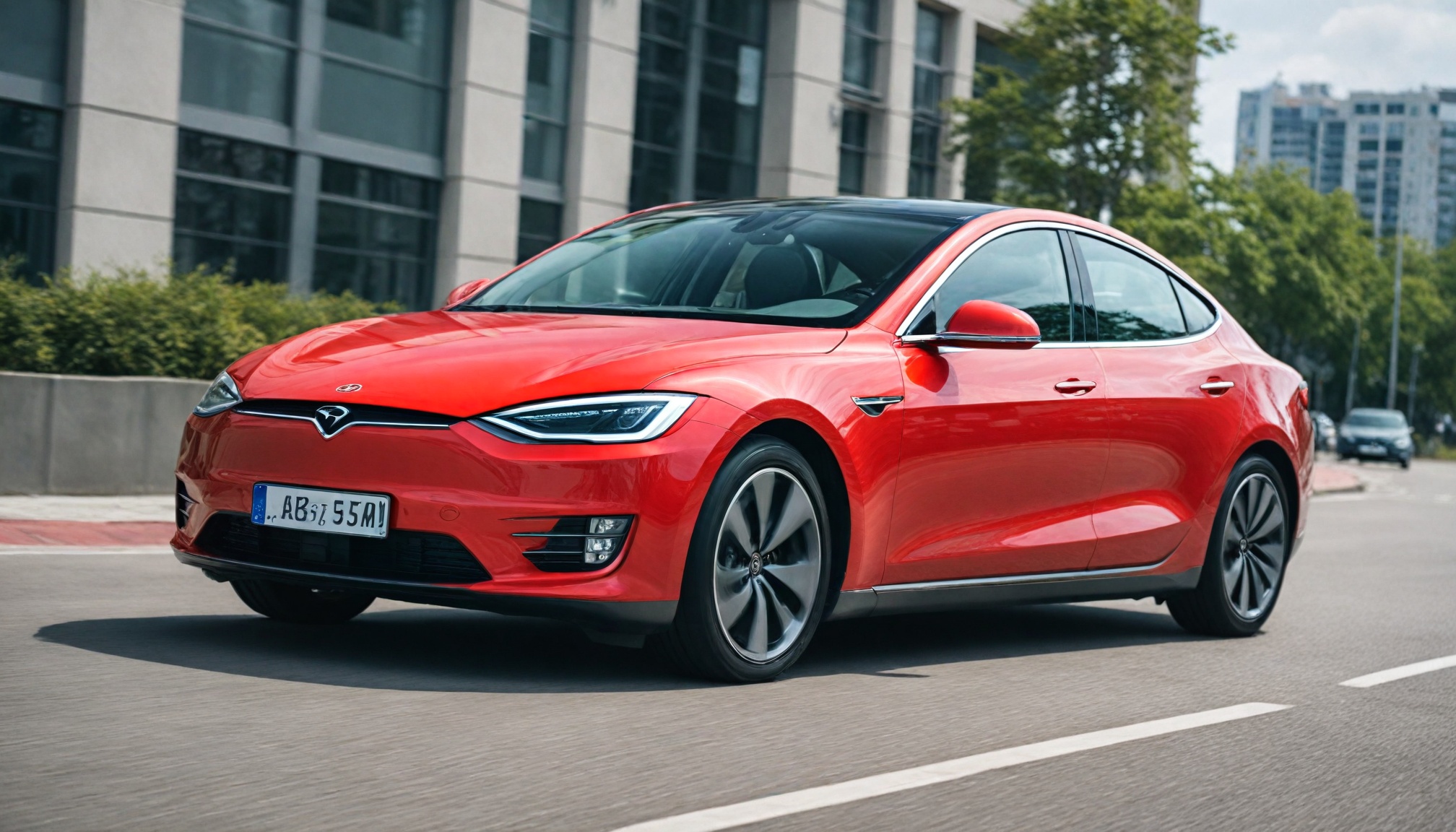
GM's $1.1B tariff hit disrupts connected car market, forcing supply chain shifts as hardware costs surge and automakers pivot to software solutions.

Drivetech Partners
General Motors' staggering $1.1 billion tariff hit in Q2 2025 has sent shockwaves beyond the automotive industry, creating ripple effects throughout the connected car IoT ecosystem. With projections suggesting a $4-5 billion annual tariff impact, automakers and technology vendors are scrambling to adapt their strategies in a rapidly changing landscape where supply chains, hardware costs, and deployment timelines are all under pressure.
Key Takeaways
GM faces a projected $4-5 billion annual tariff impact, forcing $4 billion in new U.S. manufacturing investments to reduce exposure
The global connected car market valued at $150 billion in 2025 faces growth challenges as hardware costs surge due to tariffs reaching up to 54% on imports
Automakers and vendors are pivoting toward software-centric solutions as hardware margins compress under tariff pressure
Mobile network operators may delay 5G infrastructure investments, potentially slowing IoT expansion that depends on next-generation connectivity
Supply chain regionalization is accelerating as companies seek to minimize tariff exposure through domestic production
GM's Tariff Burden: The Catalyst for Market Disruption
The scale of General Motors' tariff challenge has stunned industry observers. The automaker reported that tariff-related costs slashed its North American EBIT margin to 6.1% in Q2 2025—a full 3 percentage points lower than it would have been without these new expenses. This 32% drop in quarterly profits compared to Q2 2024 signals a fundamental shift in the economics of automotive manufacturing.
Even more concerning, GM executives have warned that the tariff impact will intensify in Q3, with full-year costs projected between $4-5 billion. Approximately $2 billion of this amount stems from imports from South Korea which includes TCUs, highlighting the global nature of automotive supply chains and their vulnerability to trade policy shifts.
In response, GM has announced a $4 billion investment in domestic manufacturing capabilities, aiming to bring new capacity online within 18 months. The company hopes to offset at least 30% of tariff impacts through cost-cutting measures and increased U.S. production.
Connected Car Market: Growth Forecasts Meet Economic Reality
Prior to the tariff disruption, the global IoT and connected car market was on a robust growth trajectory. Market estimates placed its value at approximately $150 billion in 2025, with projections reaching $500 billion by 2033—representing a compound annual growth rate of 15%. Alternative forecasts suggested the market would reach $359 billion by 2030, implying a 19.2% CAGR.
This growth has been fueled by accelerating adoption of advanced driver-assistance systems (ADAS), expanding smart city initiatives, and the rollout of 5G networks that enable more sophisticated connected vehicle applications. However, tariff-driven supply chain disruptions are now threatening this momentum.
The semiconductor sector faces particular challenges, with Taiwan accounting for 68% of global production and a staggering 90% of advanced chips. Component imports from major manufacturing centers now face severe tariff barriers: 54% for China, 46% for Vietnam, and 24% for Malaysia. These increased costs create a direct threat to connected car innovation and deployment schedules.
Hardware Cost Inflation: Slowing Connected Vehicle Adoption
For automakers and IoT providers, the mathematics are straightforward but painful. Higher tariffs directly increase the costs of essential IoT hardware components—including chips, sensors, and connectivity modules—that form the backbone of connected vehicle technology.
Hardware-centric IoT companies already operate on thin margins, and these are now being further compressed. The likely response includes postponing hardware deployments, seeking domestic suppliers (often at higher costs), or pivoting toward software solutions that can deliver value with less reliance on new hardware components.
Connectivity costs add another layer of financial pressure. With increasing costs expected in hardware-based telecom network infrastructure and base stations, MNOs and CSPs can no longer afford to forward price yearly price reductions. For instance, Deutsche Telekom's IoT Satellite Connect tariff runs €211.50 per month per installation (including 1GB satellite and 5GB mobile data). As these fixed costs combine with tariff-inflated hardware expenses, market growth rates may slow, particularly in price-sensitive segments where ROI calculations now yield less favorable results.
Mobile Network Operators Face Infrastructure Dilemmas
Mobile network operators, responsible for 85% of global investment in mobile internet connectivity infrastructure, face particularly difficult choices. Tariffs on equipment sourced from Europe and Asia-Pacific significantly increase capital costs for 5G and IoT infrastructure rollouts.
These cost increases are likely to cause delays in network deployment as operators seek domestic alternatives or absorb higher expenses. With 4G networks expected to remain operational for at least five more years, the transition to 5G-dependent IoT applications may progress more slowly than previously anticipated.
In this environment, MNOs may prioritize short-term network capacity expansion over deployment of new technologies, potentially creating bottlenecks for advanced connected vehicle features that require higher bandwidth and lower latency.

Supply Chain Restructuring: Vendor Adaptations
Major automotive technology vendors like Continental AG, Bosch, and Harman International are maintaining their R&D investment levels despite rising component costs. However, ongoing policy uncertainty and elevated costs are increasing pressure to localize supply chains or absorb financial losses.
The industry is witnessing a shift toward software-led solutions and integration services as hardware margins compress. Pricing strategies are being adjusted to reflect new cost structures, potentially affecting innovation cycles across the connected car ecosystem.
Strategically, these vendors are developing tariff-resistant business models and supply chains that can weather continued trade uncertainties. This adaptation process creates both challenges and opportunities for different segments of the connected car market.
Automakers' Strategic Pivots
GM's response to tariff challenges—accelerating U.S. manufacturing investments—mirrors strategies being adopted across the automotive industry. To maintain profit margins on tariff-affected vehicles, connected car feature sets may be streamlined or repositioned as premium options rather than standard equipment.
IoT implementation strategies are shifting toward software updates for existing hardware rather than deploying new hardware components. Partnerships with domestic technology providers are gaining priority as automakers seek to reduce supply chain vulnerability to international trade disputes.
Regional product differentiation is increasing based on tariff exposure and market price sensitivity. Vehicles destined for different markets may feature significantly different connected car capabilities based on the economics of component sourcing for each region.
Market Transformation: Winners and Losers
As market dynamics shift in response to tariffs, clear winners and losers are emerging. Software-centric IoT solutions are likely to see accelerated adoption as hardware costs increase. Domestic semiconductor and IoT hardware manufacturers are positioned for growth as imports become less competitive on price.
However, innovation timelines for advanced connected features may extend as R&D budgets are reallocated to offset tariff impacts. Consumer adoption curves may flatten as higher costs pass through to vehicle prices or features become optional add-ons rather than standard equipment.
Market consolidation potential increases as smaller players with less financial flexibility struggle with tariff impacts. Companies without the scale to absorb higher costs or restructure supply chains may become acquisition targets or exit certain market segments entirely.
The Road Ahead: Navigating Uncertainty
While market growth projections remain positive, they may require downward revision if tariffs persist long-term. The emphasis on ROI calculations and value-driven IoT implementation is increasing as costs rise across the connected car ecosystem.
Potential regulatory responses to protect strategic industries like automotive and semiconductor manufacturing could alter the landscape further. Regionalization of connected car technology stacks and supply chains is accelerating, potentially creating distinct technological ecosystems in different markets.
New business models are emerging that separate hardware and software costs to maintain adoption momentum. This structural adaptation may ultimately create a more resilient connected car market, but the transition period presents significant challenges for all stakeholders in the ecosystem.
Sources
WardsAuto - GM's Q3 Earnings Hit by Tariffs
ArchiveMarketResearch - IoT and Connected Car Report
IoT Business News - Navigating the Impact of Tariffs on the IoT Market
Telekom - Tariffs for Satellite Connectivity
SupplyChainBrain - GM Says Tariffs Cost $1.1B in Q2
Market.us - Connected Car Market Report
ComputerWeekly - MWC 2025: Operators Account for 85% of Mobile Infrastructure Investments
IoT For All - How New Tariffs Will Affect the Internet of Things
Wolf Street - GM Ate $1.1 Billion in Tariffs in Q2
Research and Markets - Connected Car Market Forecasts from 2025 to 2030



